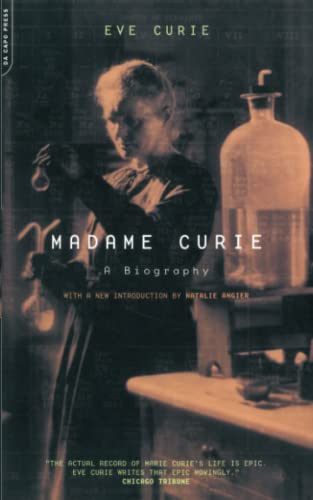






It’s been a busy first weekend in November, which is why I’m a couple of days late for this month’s Six Degrees of Separation. This bookish meme, in which readers link together a chain of books, is hosted by Kate at Books Are My Favourite and Best.
November’s starting point is Sigrid Nunez’s novel What Are You Going Through.
I haven’t read this novel yet, but I have read Kate’s review of it, so I know what it’s about.

What Are You Going Through is about a woman who has been asked by a friend with terminal cancer to help her to die on her own terms. It explores what becomes a priority when faced with the end of life, and what can’t be let go of, alongside what constitutes family and friendship. Heavy stuff. I’m choosing Permafrost by Eva Baltasar as my first link in the chain.

Baltasar’s novella is about a woman whose daily thoughts include a will to end her own life. She is depressed rather than terminally ill, but her depression produces a similar drive to live, or die, on her own terms. Permafrost is darkly funny, exploring the tensions in families, and the long lasting impact of parenting choices. That’s sending me on to my next link.

I haven’t read Mommie Dearest, Christina Crawford’s memoir of growing up the daughter of actor Joan Crawford, but I know the stories about her mother. Joan Crawford was a big star in her day, but struggled with the pressures of fame. Her coping mechanism was alcohol and taking her anger out on her daughter. In a way, I guess, Crawford knew that her star would eventually wane, which is a sort of death sentence. This made me think of a novel that explores how people respond to the specific knowledge that they will one day die.

The Immortalists by Chloe Benjamin is about a group of siblings who visit a fortune teller and each discovers the precise date and nature of their death. The novel explores how each of them deals with that knowledge, whether it’s packing their life with meaning, doing whatever they want regardless of the consequences, or living in denial of their certain fate. This idea of knowing your destiny in advance made me think of the true story of someone who didn’t know her destiny, and accidentally became the source of scientific advances in the treatment of cancer.

Henrietta Lacks was an African-American woman who, after a tumour led to hospital admission, had some of her cancerous cells harvested without her knowledge and examined in a lab. These cells were found to be unusual, in that they continued growing after removal from the body, in a way that enabled them to be used to develop treatments, not just for the cervical cancer that killed Henrietta, but for other diseases and for infertility, as well as being critical in the development of gene mapping. Known as HeLa cells, they represent the immortality of Henrietta Lacks. Rebecca Skloot’s telling of Henrietta’s story, The Immortal Life of Henrietta Lacks, explores the exploitation of Henrietta’s body without her permission, and the painful fight by her family after her death to regain control over Henrietta’s cells and their own bodies. Surrounding this pain and exploitation is the story of the incredible contribution one woman has made to scientific progress. For my next link, I’m going with another female contribution to scientific progress.

Madame Curie is a biography of pioneering scientist Marie Curie by her youngest daughter Eve. It’s not a book that I’ve read. Originally published in 1938, it has been reissued a number of times over the past 80 years, and documents Marie Curie’s life from her childhood in Poland to her scientific work in France. Curie was the first woman to be awarded a Nobel Prize, shared with her husband Pierre and fellow researcher Henri Becquerel, for her contribution to research into x-rays and radiation. After her husband’s death, Curie became the first woman to become a Professor at the University of Paris and went on to isolate radium, opening up new treatments for cancer.

The final book in my chain is The Essex Serpent, which I’ve already included in two previous Six Degrees chains. This time I’m including it for its depiction of cancer and the death of an incidental character from it. At the start of the novel, Cora Seaborne’s husband Michael is dying of throat cancer, and Sarah Perry uses this event to draw a picture of Cora’s family life and the liberation she feels in response to her husband’s death. The novel is set at a time when cancer treatments were palliative rather than curative, before Marie Curie’s research, before Henrietta Lacks’s cells brought breakthroughs in treatment. Michael Seaborne’s horrible death is described by Perry without sympathy, and it’s a death that is completely out of his control, taking us back to the beginning of this chain, and Nunez’s story of a woman who seeks to take control through assisted dying.
My chain this month, then, is about our relationship to death, how we seek to control it, particularly when the bringer of death is cancer, but it’s also about families and the people who surround us on our journey through life. It could have been completely grim, but there are sparks of hope in there.
Why not join in? Can you create a chain of six to hang from the starting book? Head over to Kate’s blog to find out what other readers have chosen.
Your explanations for your links were made with great clarity and — unusually for me with these reading chains — I’d actually heard of several of these titles and/or authors! And you remind me that, though I’ve read a couple of Sarah Perry’s other novels, I’ve yet to read The Essex Serpent despite buying it as soon as it was out in paperback. Tch tch!
LikeLiked by 1 person
Please make time for The Essex Serpent, Chris. It’s a wonderful bit of storytelling. And I am pleased to have included some titles and authors you’ve heard of this month!
LikeLiked by 1 person
Permafrost was an inspired choice for your first link. Of the rest, since I’ve read The Essex Serpent, I’m most tempted by the Henrietta Lacks book.
LikeLiked by 1 person
Thank you, Margaret! The Henrietta Lacks book is wonderful. The author does a good job of telling Henrietta’s story sensitively and navigating the barriers she faced from the family, who were understandably suspicious of a white woman taking Henrietta’s story from them while at the same time putting their trust in her to gain some kind of justice for Henrietta. We have an exhibition on at work at the moment about cancer diagnosis, treatment and research, and there are samples of HeLa cells on display. I felt slightly starstruck when I saw them, they’re so important.
LikeLiked by 1 person
Interesting. Is your exhibition going on tour?
LikeLike
It’s in Manchester until March next year, then going to the Science Museum after that. I haven’t heard that it will be going anywhere else but will ask tomorrow.
LikeLiked by 1 person
Maybe I could manage one of those.
LikeLiked by 1 person
What a brilliant link between The Immortalists and The Immortal Life of Henrietta Lacks. And I’ve even read both of them so can fully appreciate the association. I also read Mommie Dearest back around the time of its publication and was completely astounded by how Joan treated her daughter. I just recently read something about how our confrontation with the fact of death underlies most literature, and now you’ve get me thinking more specifically about that theme.
LikeLiked by 1 person
Thank you, Mary, I’m so pleased to hear that you appreciated that link. I hadn’t thought about confronting death being the bedrock for most literature. What an interesting concept. I’ll be thinking about it more, too, now!
LikeLike
Beautifully done. I do love a good six degrees chain. 😁
And you’ve reminded me that I still have to read about Henrietta Lacks.
LikeLiked by 1 person
Thanks, Mayri! I wholeheartedly recommend Rebecca Skloot’s book. It’s a compelling account.
LikeLiked by 1 person
I’m sure I’ve seen it in the library. I shall check tomorrow. Thank you for the recommendation. 😊
LikeLiked by 1 person
Jan, what a powerful chain and linked with your usual clarity. With both my parents perilously frail, death is a constant in my life and has been for a while. It’s led to some positive developments in my own thinking, inevitably mashed up with pain, worry, confusion etc. I almost ducked out of six degrees this month because I wasn’t looking for yet more discussion of death and dying but your chain has provided constructive food for thought without ramping up the emotional drain. Thank you for that! And so, to the chain itself.
The Immortalists and Henrietta Lacks both stand out, Marie Curie also. I’m tempted by each of those. I’ve never been interested in Mommie Dearest. Permafrost and the Nunez are no-gos, certainly at the moment. But the key book is The Essex Serpent. I have this one and have planned to read it many times without actually beginning. Thanks to your comments here, I now know it’s definitely not the book to read for a while yet. There will be a better tie for that one 😊
LikeLiked by 1 person
Thanks, Sandra. I’m glad my links were helpful rather than adding further gloom to the mix. Bearing witness to our parents’ decline is hard, I know from experience.
I hear you on The Essex Serpent. There will be a better time for you to read it.
I absolutely recommend the Henrietta Lacks book. Skloot handles the history and its ongoing impact really sensitively. The Immortalists is an interesting one, too. I haven’t read the Curie book, so can’t say what it’s like. It seems well thought of, though.
LikeLiked by 1 person